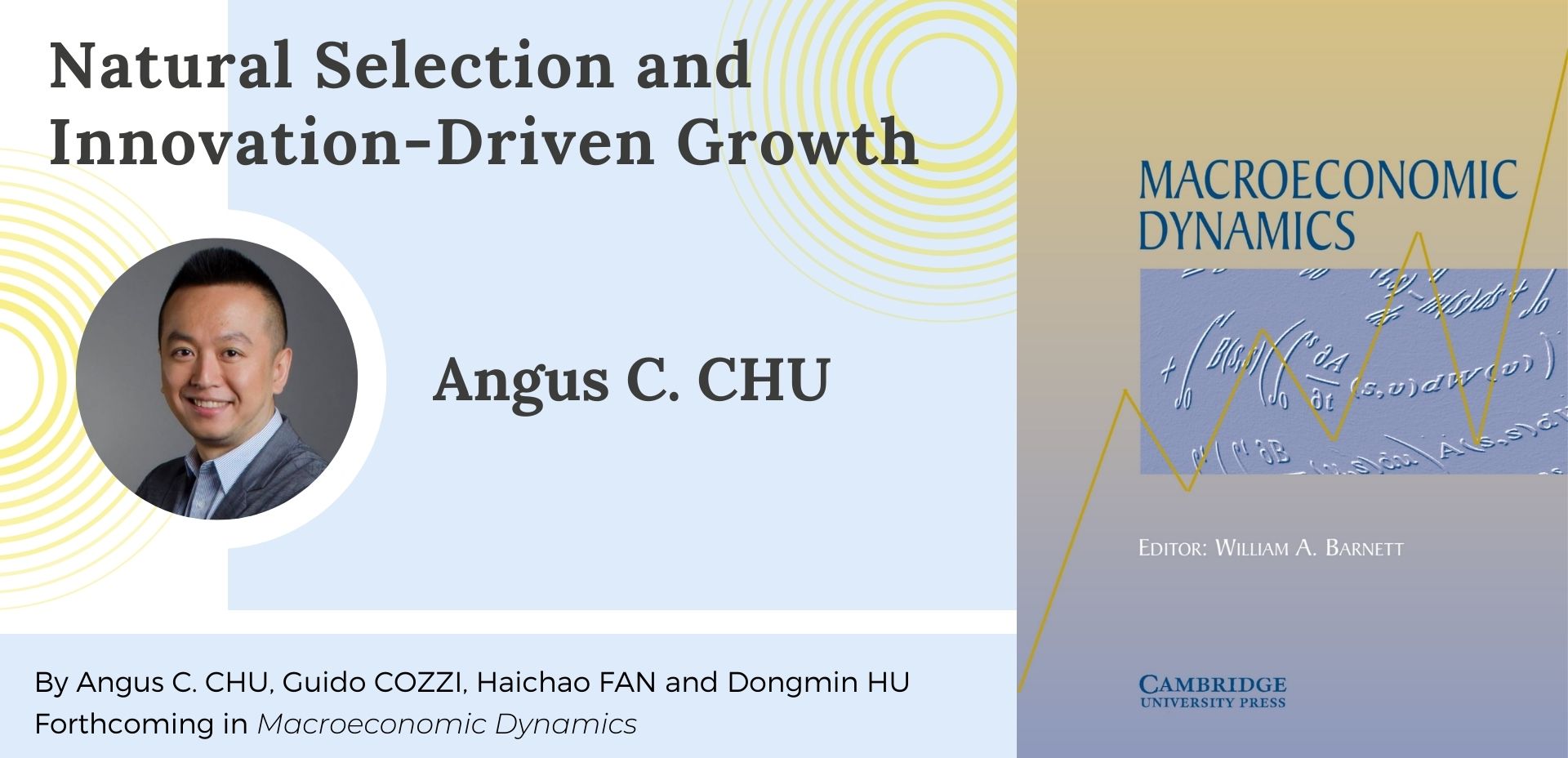
Natural Selection and Innovation-Driven Growth
By Angus C. CHU, Guido COZZI, Haichao FAN and Dongmin HU
Forthcoming in Macroeconomic Dynamics
Abstract:
This paper examines how the interaction between natural selection, household education choices and R&D activities influences macroeconomic growth. We develop an innovation-driven growth model that integrates household heterogeneity in educational ability with endogenous fertility and the activation of innovation. Our findings reveal that households with lower educational abilities accumulate less human capital but have more offspring and initially gain a temporary evolutionary advantage. This demographic shift enhances the likelihood of innovation taking off; however, the resulting reduction in the share of high-ability households ultimately constrains R&D efforts and slows long-term economic growth. We empirically validate our theoretical model using cross-country data and instrumental variables, demonstrating that disparities in educational ability negatively impact education, innovation and growth over the long run. This study provides new insights into the complex dynamics between natural selection, endogenous fertility and economic development, with significant implications for both policy and theory.
